Home | Program | Sponsors and Partners
Restoring Ecosystems to Reverse Global Warming
– Speakers –

Steven I. Apfelbaum is principal ecologist and chairman at Applied Ecological Services of Brodhead, Wisconsin. He has conducted ecological research, designed award-winning projects, successfully navigated regulatory programs, and contributed his unique creative scientific expertise and enthusiasm to over 1,500 projects throughout North America and beyond. He is one of the leading ecological consultants in the U.S., providing technical restoration advice and win-win solutions where ecological and land development conflicts arise. He has authored hundreds of technical studies, peer-reviewed technical papers, books, reports, ecological restoration plans, and regulatory monitoring and compliance reports. He promotes using ecological and conservation design principles in developments, industrial projects and parks that help clients save money while increasing ecological functionality, improving public perception and generating award-winning outcomes. He is also a much sought after speaker at educational events focusing on ecological restoration, ecosystem assessment, alternative stormwater management and conservation development.
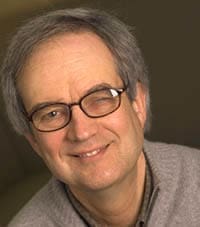
John E. Carroll is professor of environmental conservation in the Department of Natural Resources. In three decades at UNH, he has taught and done research on national and international environmental policy, diplomacy, ethics, and values as they pertain to sustainable agriculture and food systems. His recent books include Sustainability and Spirituality, and The Wisdom of Small Farms and Local Food.
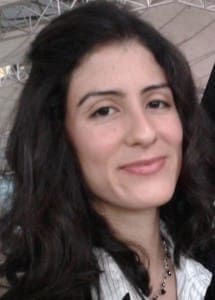
Veronika Miranda Chase is an Environmental Policy Researcher, particularly interested in issues of sustainable development, climate change and the Water-Food-Energy Nexus. She has participated in projects related to climate mitigation and adaptation in developed countries, and has also worked in developing countries with poverty alleviation and sustainable livelihoods initiatives.
She holds a Bachelors in International Relations and a Masters degree of Integrated Water Management. The main focus of her research is sustainable development in the Amazon basin. She works with Remineralize the Earth as a Research Associate and Translations Coordinator.
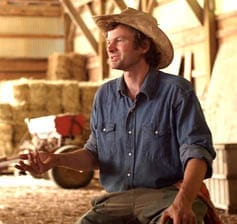
Dorn Cox is the director for GreenStart, and a farmer working the 250-acre family farm in Lee, New Hampshire. He has designed and constructed systems for small-scale grain and oil seeds processing and biofuel production, worked to select effective cover crops, grains and oilseed for food and energy production, and has developed no-till and low-till equipment to reduce energy use and increase soil health in New Hampshire conditions. He is also a founding member of Farm Hack, the New England Farmers’ Union, the Great Bay Grain Cooperative, the Oyster River Biofuel Initiative, and is a Vice President of the NH Association of Conservation Districts. He has a B.S. from Cornell University and a PhD from the University of New Hampshire. He continues to develop and refine open source agricultural research and development systems to improve farm productivity and resilience.
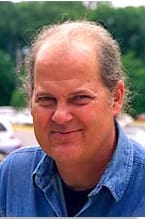
Ronnie Cummins is founder and Director of the Organic Consumers Association (OCA), a non-profit, U.S.-based network of 850,000 consumers, dedicated to safeguarding organic standards and promoting a healthy, just, and sustainable system of agriculture and commerce. He has been active as a writer and activist since the 1960s, with extensive experience in human rights, anti-war, anti-nuclear, labor, consumer, environmental, and sustainable agriculture campaigns.
Over the past decades he has served as director of US and international efforts such as the Pure Food Campaign, and the Global Days of Action Against GMOs. He served as a campaign director for the Foundation on Economic Trends in Washington, D.C. and in 1998, organized the SOS (Save Organic Standards) Campaign, spearheading the largest consumer grassroots backlash against the US Department of Agriculture in recent history. He lives with his wife and 16-year-old son in San Miguel de Allende, headquarters of the OCA in Mexico, as well as in Finland, Minnesota.
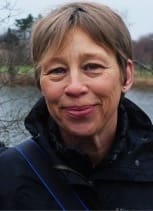
Antje Danielson is the Administrative Director at the Tufts Institute of the Environment and the graduate interdisciplinary “Water: Systems, Science and Society” (WSSS) program. She came to Tufts from Durham University (UK), where she served as the Deputy Director for Sustainability, in May 2008. Previously, she worked with the Harvard Green Campus Initiative. A long-time resident of Cambridge, Massachusetts, Antje also co-founded the innovative car-sharing company Zipcar. She holds a Ph.D. in Geology from Free University, Berlin.
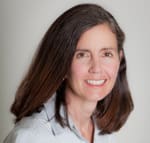
Diana Donlon is the Director of the Center for Food Safety’s Cool Foods Campaign. which offers hope on climate by empowering the public to make the critical connection between everyday food choices and climate change. Before coming to work for CFS, Diana worked for a variety of family foundations supporting youth and sustainable agriculture programs. She is the Board Secretary of Watershed Media, which has produced such titles as Farming with the Wild and Food Fight: The Citizen’s Guide to a Food and Farm Bill. She has a Bachelor’s in History from UC Berkeley, a Master’s in Education from Harvard and served in the Peace Corps in Morocco. She lives in Marin County with her husband, two teenage sons , her super friendly cat and three chickens.

Candace Ducheneaux, Hohwoju Lakota elder and long-time activist from the Cheyenne River homelands, is dedicated to preserving the Lakota way of life and the environmental integrity of our sacred mother earth. She has been at the frontlines in many grassroots battles for justice for the Lakota Oyate and against the destructive human forces threatening the existence of all humanity and the earth itself. As a mother of five and grandmother of 13, she is very concerned with the water needs of her people and the future generations. She has been working tirelessly to insure that the people of her reservation – as well as all Red Nations – will have safe water in a world in which pure water is becoming increasingly scarce.
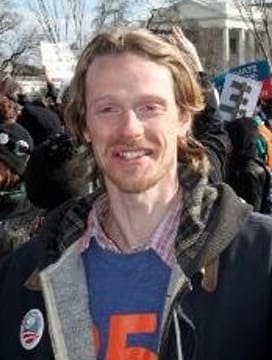
Eli Gerzon is State Divestment Organizer at Better Future Project/350 Massachusetts. His work focuses on divesting the state pension fund from fossil fuels through grassroots organizing. Before this, he ran an ultra-low-carbon landscaping business on his bicycle for 11 years. Much of his life has focused on world travel and he founded Worldschool Travel Tours for teens to Mexico and Japan. His vision was that travel experiences would develop leaders and lead to change in the world. Soon it became clear that more direct action and organizing was needed given the urgency of the climate crisis and other injustices.
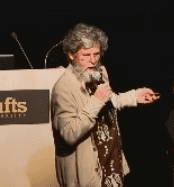
Tom Goreau is an award-winning marine, soils and climate scientist. He is President of the Global Coral Reef Alliance, a coral reef protection non-profit, and has been involved in issues affecting the United Nations, climate change, coral reef, and small island developing states all over the world in many different capacities. He has dived longer and in more coral reefs around the world than any coral scientist and has published around 200 papers in coral reef ecology, climate and other fields. He has pioneered the study of reef preservation, and has participated in several major UN global conferences.
He works with tropical fishing communities to restore coral reefs and fisheries, especially the Kuna Indians of Panama, the only native people of the Americas who have maintained their cultural and political independence. He is a hereditary leader of the Yolngu Dhuwa aboriginal clan of Arnhem Land, Australia, who preserve the world’s oldest creation myth. He was educated in Jamaican schools, at MIT, Caltech, Yale, Woods Hole, and holds a Ph.D. from Harvard in biogeochemistry. He is a trained nuisance crocodile remover who would rather not.

Seth Itzkan is a futurist and founder of Planet-TECH Associates in Somerville, Massachusetts. Planet-TECH has twenty years of experience consulting for clients in energy, urban development, youth empowerment, and futures preparedness. His other company, Charles River Web, develops Open Source web applications. His personal advocacy is climate mitigation through HM grasslands restoration. He has spent months in Africa observing Holistic Management and its extraordinary positive effects on desertified semi-arid grasslands. He produces videos and is working on a book about his experiences. Seth is co-founder of the Google Group, Soil-Age. His website is http://planet-tech.com/home.
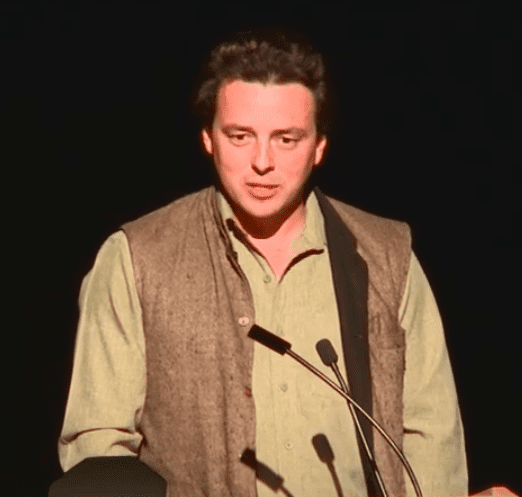
Dan Kittredge is a life-long farmer and founder of the Bionutrient Food Association. He launched The Real Food Campaign (RFC) in 2008, to empower and educate farmers towards the production of quality food for the improvement of human health. In 2008 and 2009 RFC made major strides in developing a cohesive local, national and global vision, and networked nationally to build the base to implement its mission. Under Dan’s leadership in 2009-2010 RFC began holding yearlong courses on Nutrient Dense Crop Production and building a professional team of staff.
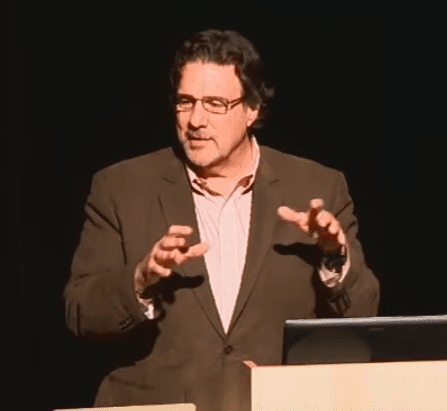
Larry Kopald has been a communications and branding professional for over twenty-five years, working at some of the world’s top advertising agencies. He has overseen the advertising for brands ranging from McDonalds to American Express to Honda, and has helped launch multibillion-dollar brands like Acura, Oracle, and Huggies.
Larry has also been a lifelong environmentalist serving on boards like Oceana, the National Marine Sanctuaries, 1% For The Planet and others. He has done the environmental communications for the UN and the Olympics, and his work for the Earth Communications Office was seen in over 100 countries by over a billion people. Larry has been nominated for both Emmy and Grammy awards. He is Co-Founder and President of The Carbon Underground.
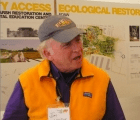
Jim Laurie, Restoration Ecologist, is a biologist from Rice University and is a pioneer in biological remediation of waste water. He was the technical manager of the world’s largest “Living Machine” project to clean raw municipal sewage with no toxic chemicals. The facility, through a grant from the EPA, processed 80,000 gallons/day using the “living machine” methodology invented by ecological visionary, and Buckminster Fuller Award recipient, John Todd.
Prior to that, for twenty years Jim was a biologist and trainer in the chemical industry in Houston, TX, where his work with living machines resulted in processing effluent cleaner than possible with conventional technology. Jim has also been a passionate advocate for Holistic Management of grasslands in the past decade. He began studying with Allan Savory twenty years ago in Texas, has spoken about Holistic Management at Harvard, MIT, Tufts, the Stockholm Environment Institute, and at meetings of the Massachusetts Climate Action Network (MCAN) and Northeast Organic Farmers Association (NOFA), and has been instrumental in spreading the message in New England. Jim is also co-founder of a lively and sophisticated Google Group, Soil-Age, and he invites you to join!
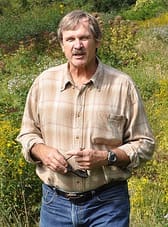
Mark Leighton is senior advisor in the Sustainability and Environmental Management Program at Harvard Extension School. He joined the Harvard faculty in 1983 in the department of biological anthropology, having received his PhD from the University of California, Davis focusing on rainforest ecology. Since then he has studied topics in rainforest community ecology, vertebrate behavioral ecology, sustainable forestry and land use, and conservation biology. In 1984, he founded the Cabang Panti Research Station in Borneo, which has remained a productive site for basic and applied studies carried out by many collaborating students and colleagues. He has directed several conservation and development projects in collaboration with Indonesia’s ministry of forestry. While director of the Great Ape World Heritage Species Project, he served as initial co-chair of the scientific commission of the Great Ape Survival Project, a joint effort between UNEP and UNESCO that strives to save wild ape populations and their habitats. His current research focuses on developing private-public initiatives for sustainable conservation and management of tropical forest landscapes.
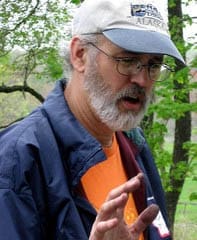
Hugh McLaughlin has a BS in Chemistry (Harvey Mudd College, 1976) in addition to an MS (USC, 1978) and PhD in Chemical Engineering (Rensselaer Polytechnic Institute, 1988). He is an expert in biochar and activated carbon and is a leader in the rapidly developing field of biochar, the precursor to all activated carbon products. He has developed proprietary technology in the production and characterization of these materials, with many years of experience in development and implementation of these new processing technologies on a commercial scale. He has presented at national conferences on biochar and published extensively on the characterization of biochar based on measurable physical properties of the end products. From 2009 to 2013, he served as Director of Biocarbon Research for Alterna Biocarbon, Inc.
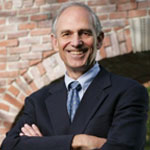
William Moomaw is Professor of International Environmental Policy at the Fletcher School at Tufts University, and founding director of the Center for International Environment and Resource Policy, the Tufts Climate Initiative and co-founder of the Global Development and Environment Institute. A physical chemist with a PhD from MIT, he works to translate science and technology into policy terms. He was lead author of four IPCC reports, and an author for the Millennium Ecosystem Assessment. He has received numerous teaching awards and an honorary doctorate from the University of Belgrade. He has worked on forestry, energy and CFC-elimination legislation and currently serves on the boards of The Climate Group, Clean Air-Cool Planet (which he co-founded), Earthwatch Institute, Center for Ecological Technologies and the Consensus Building Institute. He and his wife, Margot have just completed a zero net energy home in Williamstown that uses no fossil fuels, one of a handful of such homes to be built in northern climates.
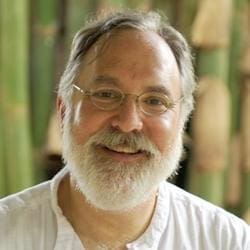
Tom Newmark has spent fourteen years in the natural vitamin and supplement industry, building New Chapter into the number one company in the industry. Tom is also the founder of Sacred Seeds and co-owner of Finca Luna Nueva, an organic farming operation in Costa Rica that administers tropical farming systems trials, collaborating with the Rodale Institute on carbon sequestration studies. He’s a trustee of the American Botanical Council, sits on numerous boards of directors, and is a contributing member of the Children’s Eternal Rainforest Organization. In his past he was a corporate attorney and entrepreneur, from which he claims to be recovering. He is Co-Founder and Chair of The Carbon Underground.
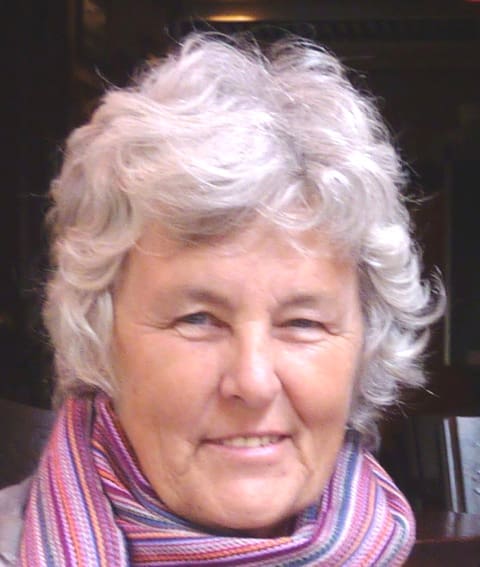
Charlotte O’Brien, President and CEO, Carbon Drawdown Solutions, is an entrepreneur, pyrolysis and biomass expert who has worked for years with many varieties of bamboo, a plant that improves soils and water cycles, expands habitats for many other species, and may be harvested sustainably for uses ranging from construction to food to biochar, a soil supplement. She recently founded Carbon Drawdown Solutions, supplying equipment for local biochar processing for long-term soil carbon storage and greatly improved soil health and productivity. At Bamboo Hardwoods Vietnam, Char was responsible for manufacturing and managing all production details, working with bamboo farmers and NGOs. She finalized the first International Construction Code (ICC) certification of bamboo in the western world and is founder and director of the non-profit BioBamboo. She earned her Bachelor’s of Science with high honors at Michigan State University, majoring in Crops and Soils, and received 3 years of agricultural technical training in Denmark, Norway and Austria.
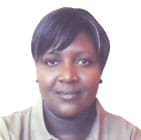
Precious Phiri is a Senior Facilitator at the Africa Center for Holistic Management (ACHM) in Zimbabwe. Precious directs training for villages in the Hwange Communal Lands region that are implementing restorative grazing programs using Holistic Land and Livestock Management. This helps rural communities in Africa to reduce poverty, rebuild soils, and restore food and water security. This nature-based solution has been successfully used on different landscapes in Africa and the Americas. Precious was born and raised in one of the communities now implementing restorative grazing.
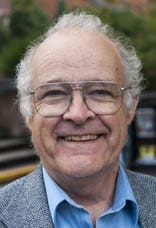
Greg Retallack is an award-winning paleobotanist at the University of Oregon, where he has been on the faculty since 1981. His research group is dedicated to the proposition that soils have a fossil record, like other living things. Past studies have considered the role of soils in ape and human evolution in Kenya, grassland evolution in North America, dinosaur extinction in Montana, angiosperm evolution in Kansas, Late Permian mass extinction in Antarctica, and evolution of trees and tetrapods in Pennsylvania. Current and future studies concern Cambrian explosion on land, Precambrian life on land and martian paleosols, with fieldwork in Newfoundland and Australia. He recently wrote a paper for the Annual Review of Earth and Planetary Sciences, “Global Cooling by Grassland Soils of the Geological Past and Near Future.“
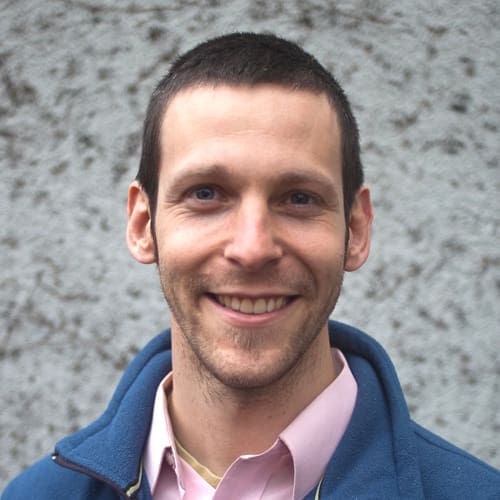
Ethan Roland is an international expert on regenerative agriculture and permaculture design. He is the lead organizer of the 2015 Carbon Farming Course, and is launching Regenerative Real Estate LLC to transform large areas of degraded land into economically & ecologically profitable farms. Ethan is the President of the Apios Institute for Regenerative Perennial Agriculture, the founder of Regenerative Real Estate LLC, and holds an B.S. in Biochemsitry from Haverford and an M.S. in Eco-Social Design from Gaia University.
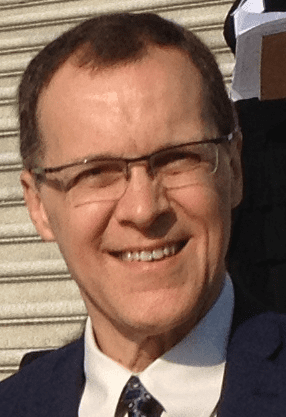
Gary Rucinski is co-founder and chairman of the Committee for a Green Economy, and is Northeast Regional Coordinator of the Citizens Climate Lobby, a grassroots nonpartisan nonprofit building the political will for a sustainable climate. Since founding CCL’s Boston chapter in 2010, Gary has become the local organization’s primary spokesperson advocating for a national tax on carbon that would return 100% of proceeds to households. He has been interviewed by Betsy Rosenberg on On The Green Front and Kathryn Lowell on Occupy Boston Radio and is a frequent contributor to the Boston Globe Letters to the Editor section. Gary holds a Ph.D. in Physics from the University of Rochester and a BA in Physics from Brandeis University. When not advocating for a stable climate Gary lives in Newton, Massachusetts with his wife and three children.

Vanessa Rule is co-director and lead organizer for Mothers Out Front. She has been working to address the climate crisis since the fall of 2006, as lead organizer for Somerville Climate Action, as a board member of the Massachusetts Climate Action Network, and as co-founder of Better Future Project and 350 Massachusetts. Her love of people, nature, and systems has led her to focus on building relationships and networks that enable people to take action together to build a resilient, just, and sustainable future. Vanessa holds a B.A. from Bryn Mawr College and an M.S. from Antioch University New England. She splits her time between Somerville, Massachusetts and Strafford, Vermont, where she lives with her two children.
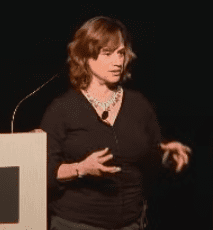
Judith Schwartz is a longtime freelance writer and author of several books. Over the last several years she has written about the juncture of economics and the environment for such publications as Time,Time.com, the Christian Science Monitor, Conservation, and the UKGuardian. Most recently she is the author of Cows Save the Planet and Other Improbable Ways of Restoring Soil to Heal the Earth (Chelsea Green Publishing, 2013). The Organic Consumers Association calls the book “a call to action for the soil”, while author Michael Pollan says the book is “the most hopeful and surprising book on the environmental crisis I’ve read this year.” Judith has a B.A. from Brown University, an M.A. in Counseling from Northwestern, and an M.S.J. from the Columbia University Graduate School of Journalism.
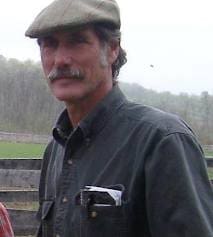
Ridge Shinn advocates raising beef on a 100% grass diet to change the present model of beef production and distribution in North America, resulting in an ecologically based and economically sustainable system. Large-scale implementation would lead to improved human health, energy savings, and an increase in carbon sequestration, soil fertility, and biodiversity. He has developed markets and distribution systems for grass-fed and grass-finished beef throughout the northeastern United States. Ridge has been featured in TIME Magazine, “Save the Planet, Eat More Beef (grass-feeding required)”; Atlantic Monthly, “Back to Grass”; The New York Times, “The Greening of the Herd”; and other major media outlets. His website is https://www.bigpicturebeef.com/.
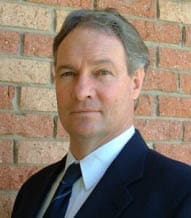
Richard Teague is Associate Resident Director and Professor of Sustainable Rangeland Management at Texas A&M AgriLife Research and Extension Center. His philosophy is that research and service must provide the linkage that enables managers to base decisions for sustainable land use on the principles of ecosystem function. He uses four key elements to enhance this linkage: a systems research program, resource accounting, long-term assessment and partnering with rancher clientele. His goal is to use a systems approach in developing land and livestock management practices that sustain natural rangeland resources and the people depending on the land. His work includes studies of holistic management practices published in professional journals.
